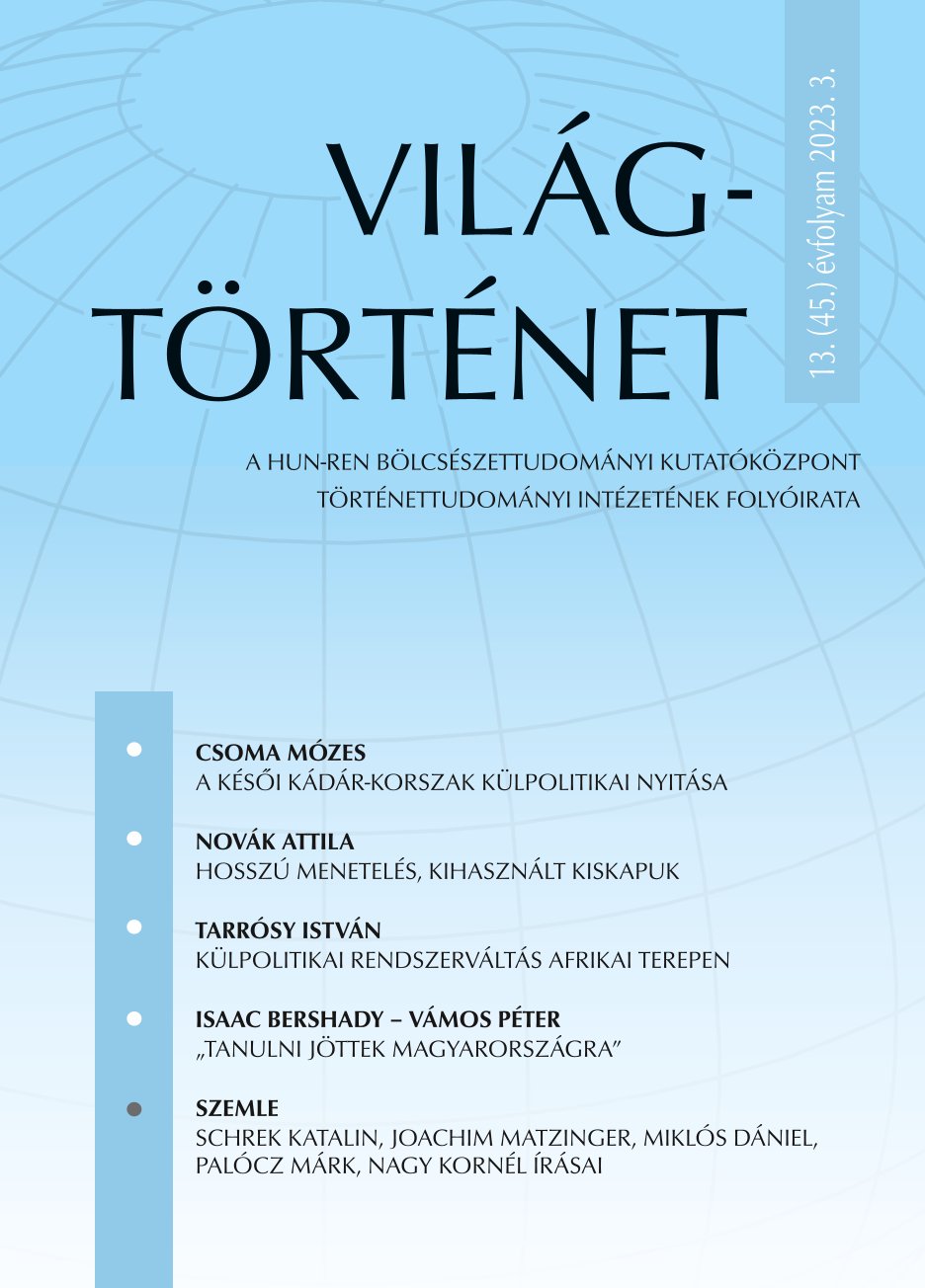Külpolitikai rendszerváltás afrikai terepen. Kapcsolatok a Dél-afrikai Köztársasággal az 1980–1990-es években
Hungarian Foreign Policy Regime Change in Africa: Relations with the Republic of South Africa in the 1980s 1990s
Author(s): István TarrósySubject(s): Diplomatic history, Post-War period (1950 - 1989), Transformation Period (1990 - 2010)
Published by: Magyar Tudományos Akadémia Bölcsészettudományi Kutatóközpont Történettudományi Intézet
Summary/Abstract: The paper examines how the political-economic changes of the 1980s affected foreign policy. In an increasingly interdependent world, Hungarian leaders saw in many developing regions a ‘model for successful political and economic transformation’. The view that the country should be ready to take the leap and forge new relations was gradually strongly expressed. Hungarian diplomacy also sought contacts with the Republic of South Africa, which at that time had not yet broken with apartheid. One of the manifestations of this was the visit of Foreign Minister Roelof Pik Botha to Budapest on 3 January 1990, which is at the centre of attention of this study. The paper focuses on the evolving bilateral relations and the foreign policy regime changes on both sides by analysing contemporary press reports and archival materials. It first describes the actions of Gyula Horn’s diplomacy towards South Africa, the process, background, and results of relationship building. Then, it looks at the mainly economic and trade cooperation in the new era up to the first half of the 2010s.
Journal: Világtörténet
- Issue Year: 2023
- Issue No: 3
- Page Range: 371-385
- Page Count: 15
- Language: Hungarian

